There’s an intensity to the Alps that few places can match, and glaciologist Luc Moreau knows it better than anyone. With years of experience studying glaciers, he has a front-row seat to their dramatic changes, especially at the Mer de Glace, which is now shrinking at an alarming rate. For Luc, each season is another chapter in a story that’s rapidly unfolding before our eyes.
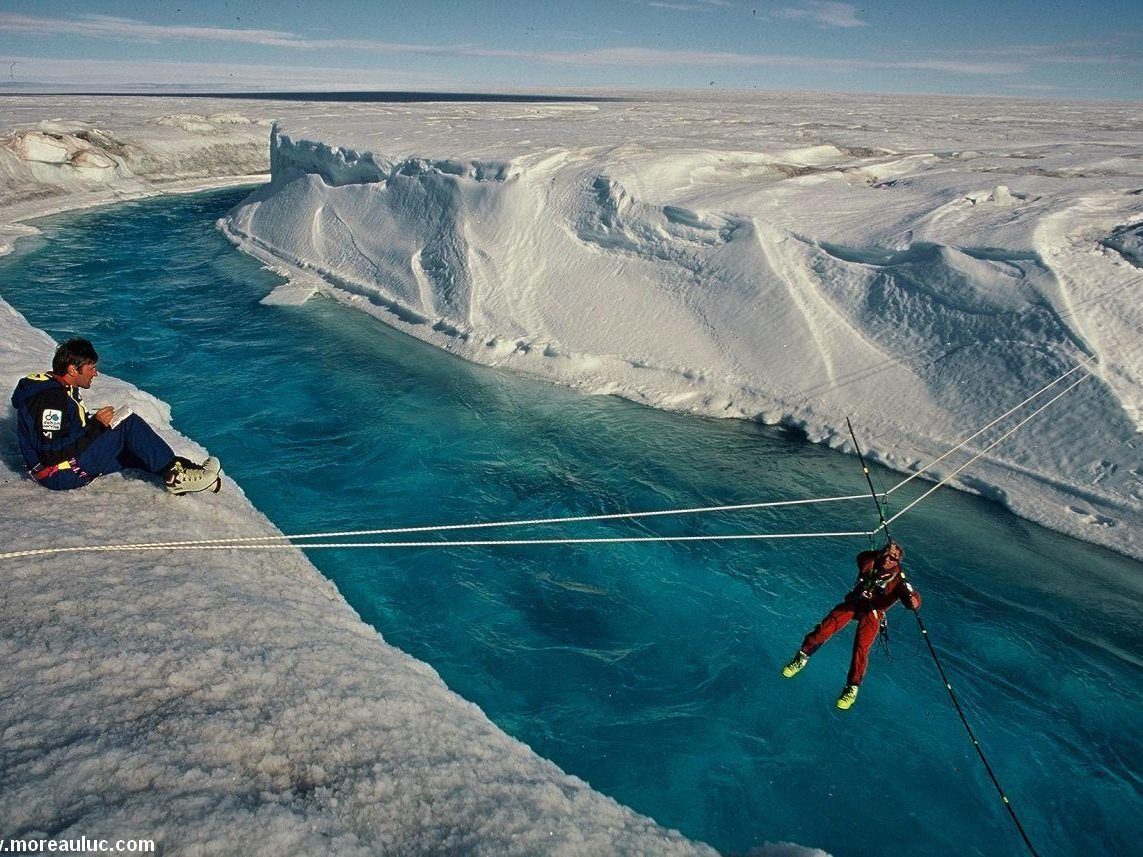
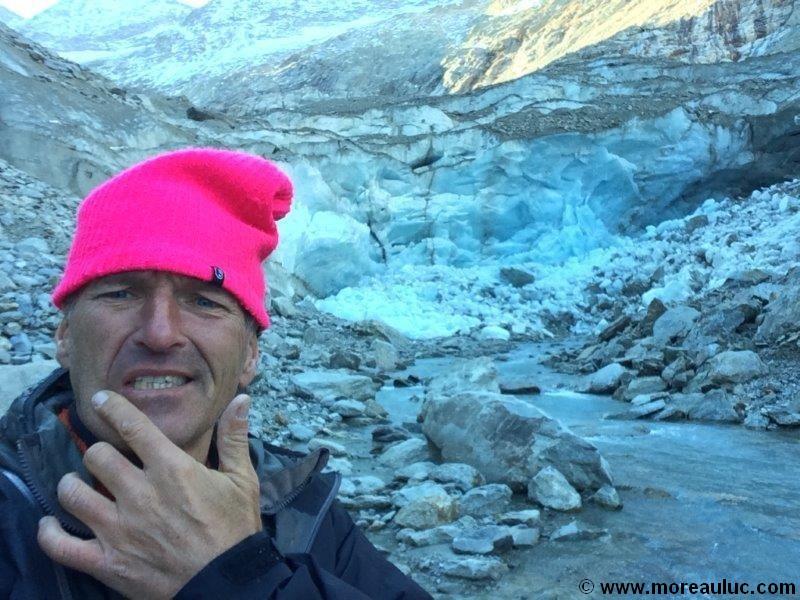
Marie : “Luc, could you share with us a moment that highlighted the scale of changes you’re witnessing at the Mer de Glace? Why are these glaciers crucial for understanding the urgency of climate change?“
“The melt is devastating to witness, but what strikes me is how visibly these glaciers are deteriorating—they’re darkening and losing mass at a startling pace. I’ve watched the Mer de Glace, once a sea of brilliant ice, turn into a stretch of rock-strewn rubble, where even the Bossons Glacier, which used to be an endless sheet of white, is now scarred with dirt and stone. For those of us who’ve known it for years, it’s painful. These glaciers were monuments to endurance; now, they’re nature’s stark reminder of our impact.”
An Urgent Scene of Transformation
Marie : “You mentioned that the Mer de Glace loses about 40 meters each year. How has this affected the landscape around it, and what’s your vision of the future here?“
“It’s astonishing and unnerving—the landscape is shifting at an unprecedented rate. Just over the past three years, the glacier has lost 40 meters in thickness. Imagine standing at the same spot each year and watching it sink away beneath you. And the width—this massive ice flow—is shrinking, with almost no new ice to take its place. It’s as if someone turned off the ice supply. The change is visible weekly now; I use markers on the glacier, and they’re recording a drop of around two meters every month.”
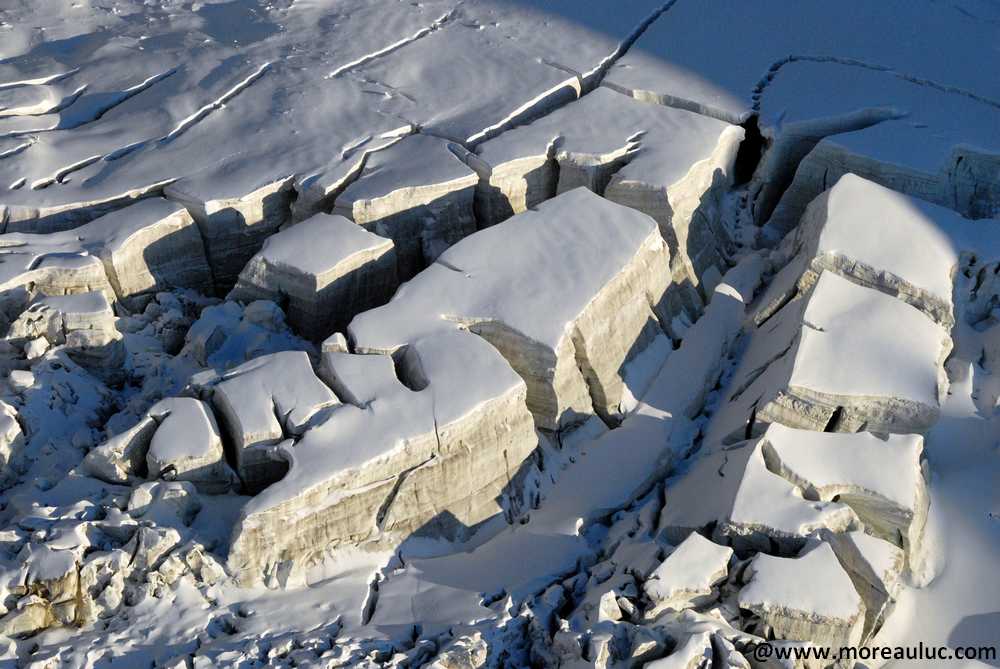
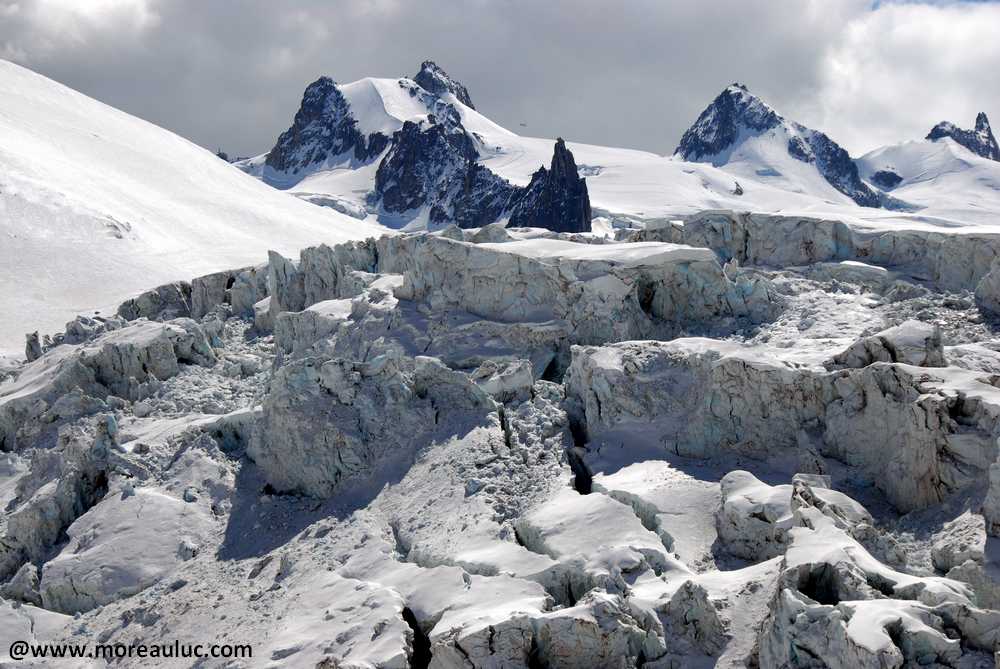
Marie : “How does the melting of glaciers like the Mer de Glace contribute to rising sea levels, and what impact could this have, particularly on coastlines around the world?“
“The contribution of mountain glaciers to sea-level rise is modest—maybe 30 to 40 cm worldwide if they all melted. But the true giants in this story are the Greenland and Antarctic ice sheets, whose melt could raise sea levels by meters.
Yet, for those of us near mountain glaciers, their melt means something very tangible. They’re crucial for drinking water, agriculture, and even hydroelectric power. Take the Rhône River—much of its flow depends on meltwater. We’re facing a future where rivers may dry in summer, threatening crops, energy, and even the cooling of nuclear plants. It’s a high-stakes game, and we’re all players, whether we live by the coast or in the mountains.”
Marie : “Are all Alpine glaciers facing the same situation? How does the Mer de Glace compare to other European glaciers?“
“Glaciers worldwide are in retreat. This past summer, I worked in Greenland, where we recorded a glacier loss of two kilometers in 20 years. The Alps, though, have glaciers shrinking even faster—up to three kilometers over a similar period. Some glaciers appear stable because of unique conditions, but it’s temporary.
Alpine glaciers are invaluable as accessible natural labs for research. These studies help us understand how major ice sheets will respond to climate changes. We’re observing, measuring, and preparing for risks—avalanches, potential floods from glacial lakes, and much more. These glaciers are speaking to us; it’s up to us to listen.”
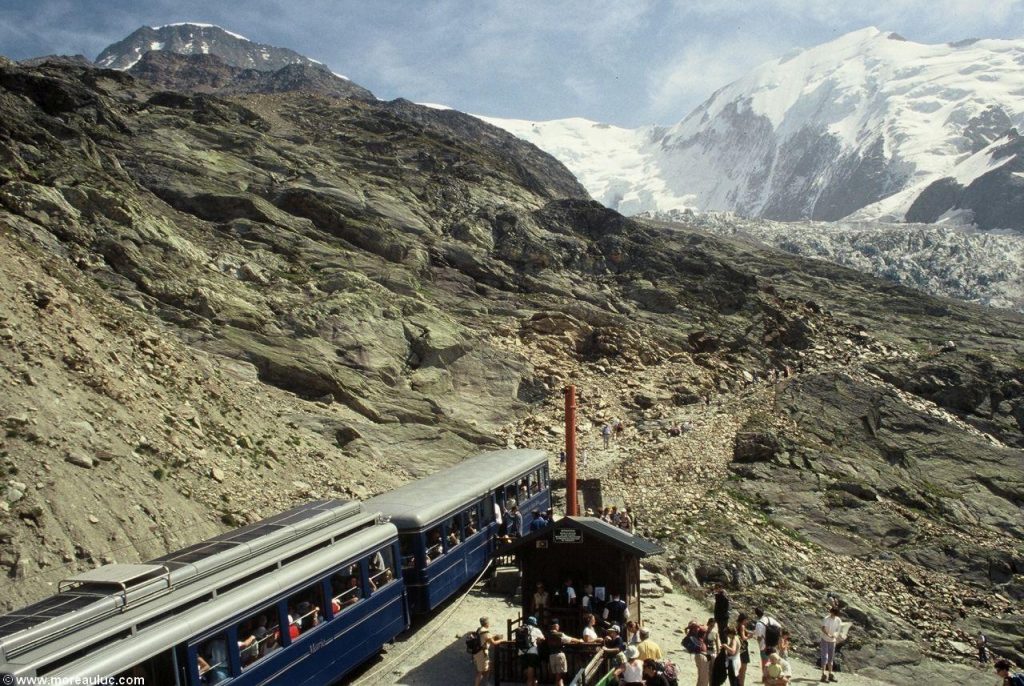
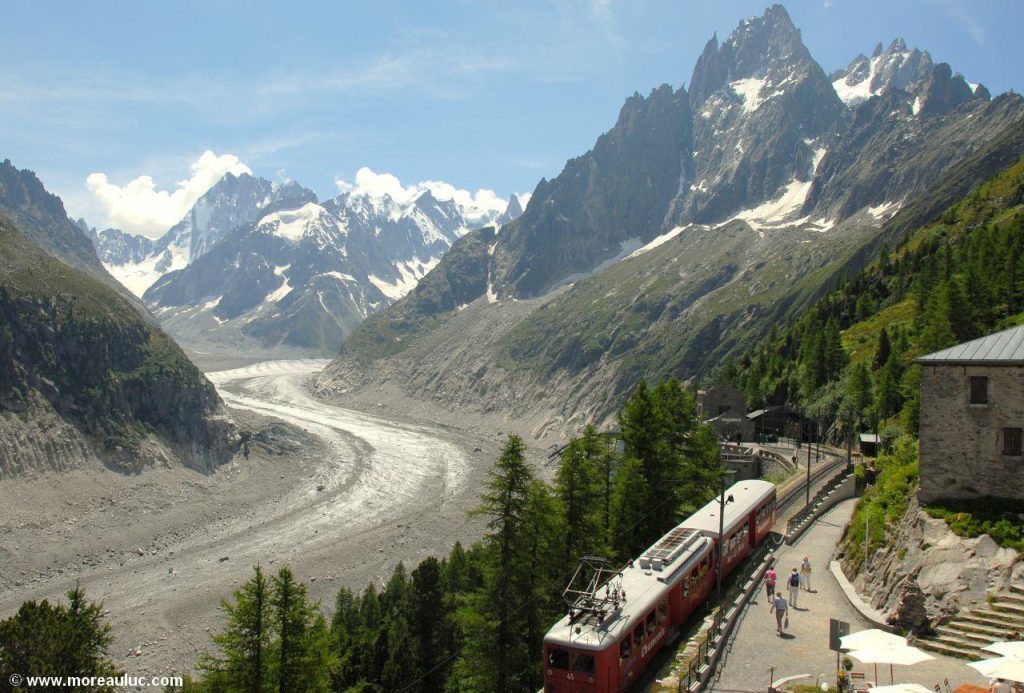
Forecasting a Future of Change
Marie : “If we stay on our current path, what will Alpine glaciers look like in 50 years? Are there any measures that could slow this decline?“
“If we stay the course, we’re likely facing 3 to 4 degrees Celsius of warming by century’s end. Most glaciers below 3,500 meters in the Alps will vanish. Snow will fall only at high altitudes, and winter rains will be more common. This will transform the landscape entirely.
Less ice means destabilized rock faces and increased mudslides. There’s also what I call “last-chance tourism”—people coming to see glaciers before they’re gone. It’s a trend we see everywhere, from polar regions to high mountains, and it underscores the urgency of the moment.”
Marie : “Why is Chamonix such a crucial site for glacier research, and what steps are being taken to protect the Mer de Glace?“
“Chamonix is exceptional for glacier studies due to its accessibility and the breadth of research conducted here. The Mer de Glace is particularly significant as a spectacular vantage point and a hub for scientific dissemination. Each year, thousands visit to explore the ice cave and learn about the impacts of climate change from experts on-site.
Local initiatives to reduce emissions include promoting public transport and electric vehicles, regulating wood-burning stoves, and banning certain types of fires that contribute to glacier melt. These efforts, while small, are vital in reducing the environmental footprint of a high-traffic tourist area like Chamonix.”
A Call for Responsible Travel
Marie : “As a glaciologist, what advice would you give to luxury travelers eager to explore glaciers while contributing to their preservation?“
“Exploring these glaciers responsibly is key. The Mer de Glace is unique, not just visually but educationally. From Montenvers, visitors can meet glaciologists like myself who discuss how climate change is reshaping these giants. It’s powerful to experience it firsthand.
For travelers, my advice is to prioritize longer stays over frequent short trips, support sustainable initiatives, and think about each choice—from your hotel to your activities. Even a small action, like choosing an eco-conscious hotel, helps. It’s not just about seeing glaciers—it’s about helping ensure they’re there for the next generation to see, too.”
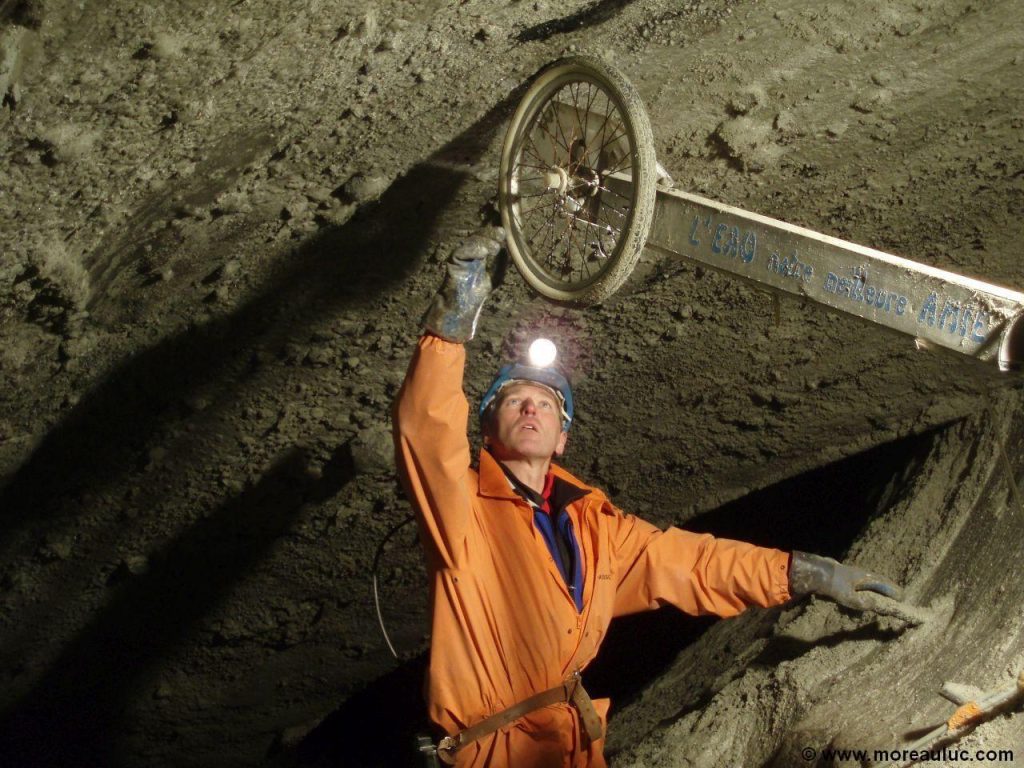
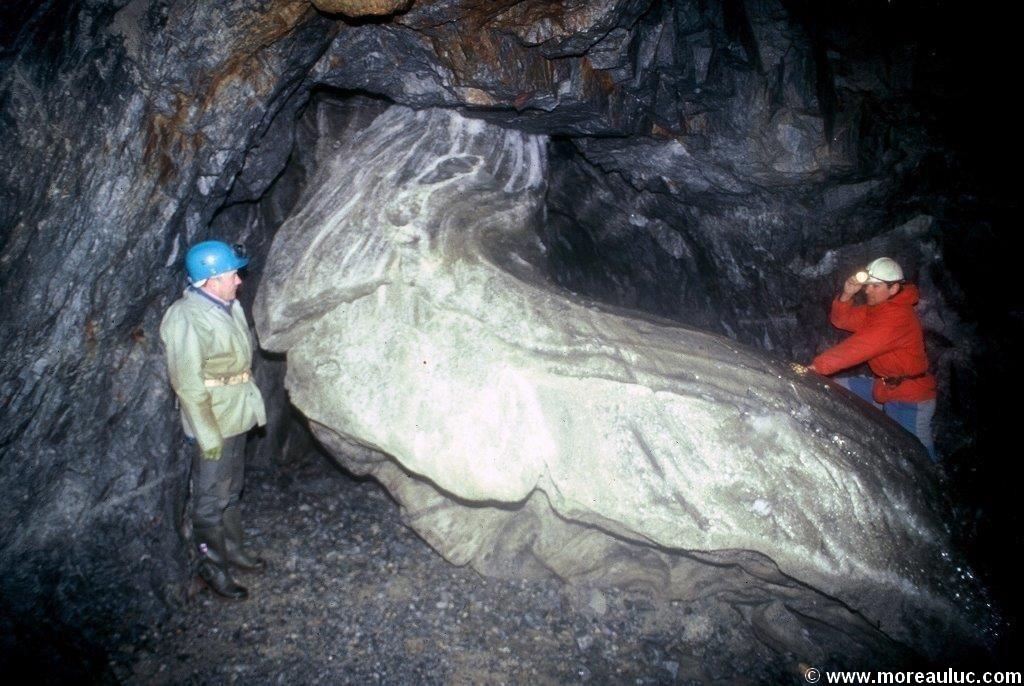
Conclusion: A Personal Invitation to Act
“Finding a balance between modern living and environmental preservation is essential. We encourage visitors to come and learn, to see the Mer de Glace for themselves, and to leave with a sense of purpose. There’s no substitute for seeing it firsthand, and we hope it inspires everyone to make sustainable choices.
When you travel here, think beyond just the destination. Consider the impact of each step you take. Support local preservation initiatives, and leave knowing that your visit played a role in conserving this incredible landscape. Come and witness this story—it’s one you’ll carry with you long after you leave.”
A Respectful Journey to the Heart of the Alps
Discover the Mer de Glace in a way that honors its fragile beauty. Reach out to us, and we’ll arrange a truly mindful experience—immersive, informative, and deeply respectful of these remarkable glaciers. From exclusive, private moments with experts like Luc Moreau to guided explorations that reveal the hidden stories and delicate ecosystems of the Alps, we’re here to create a journey that lets you connect with this awe-inspiring landscape responsibly, leaving a positive impact and lasting memories.


